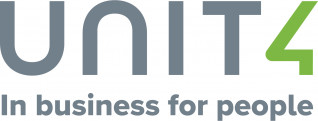Here’s some Key Learning & Development Concepts to Consider
- Content is less important than you think, even poor content – the focus needs to be on what happens after the delivery.
- If you’re not familiar with the Kirkpatrick or Phillips models of evaluation, then you will not understanding that Level 3 is a very critical level. What I see is most doing level one and two then wanting to jump to 4 or 5 depending on what model you follow
- Everyone shouldn’t have access to learning, it should be a privilege that’s earned. Over $40B spent on learning, where’s the ROI? Did you ever notice that those who did well in your workshops were the high performers, not a coincidence
- If building organizational competence is truly your mission, then don’t hire anyone that isn’t willing to learn on the companies time and their time.
- If you don’t get to application after two weeks of the learning intervention, your attendees will lose 70% of they’ve learned, this is why application is so critical.
- If you keep conducting the same classes or offering the same content and nothing has changed, stop doing that and move to another approach or different content
- Most of you have forgotten about the 9 Box Transfer of Training Model, Vertical axis, Boss, Employee Trainer, Horizontal Access, Before, During and After. Box one and three, is the boss before and after, box 2 is the trainer delivering the knowledge to the employee. Guess what, 1 and 3 never happen, so nothing changes, this issue is one faced by every organization, I mean ever
- Learning should be competency driven, that’s how you build organizational competence, you identify the core competencies that drive organizational results, guess what, your other talent systems, selection, performance management and succession planning are all competency-driven. Less than 50% of Fortune 500 companies use competency modeling, don’t know why
- If you are using an LMS, make certain that you build in the Amazon 5 star rating approach. It helps drive others to the content and more importantly, tells you how your customer feels about the content
- When your customer comes to you with a problem that requires your learning solution, don’t believe what they tell you. I’ve learned that my customers bring me symptoms, I ask a lot of good open-ended questions to ensure I’m dealing with the root cause. I passed this skill on to my team, you need to know how to consult
- If your learning strategy is a push and not a pull, you’ll never be successful.
- If you’re a learning department consider yourself to be a vendor and the currency of your customer to be time. You have to sell them on the idea of using your solutions, the best way to do that is have other customers talk about the effectiveness of your solutions. Remember, nothing beats a good testimonial and don’t be afraid to share those with the organization.
- If the flipped classroom approach isn’t in your strategy, you’re missing the boat and the point. As I mentioned earlier, degreed has taken care of the content, you need to focus on getting the learner or a group focused on applying that learning in a real live project. Two things happen, you get real-time experience and you move the needle on the company’s results
- If your goal is to build certain organizational competencies, remember, more is less. Instead of focusing on several, which forces you to go 10 miles wide and an inch deep, pick one or two and do a real deep dive, so that you’re a mile wide and 10 miles deep, a better return
- Whose responsibility is the development of the company’s employees? If you said you are, go directly to jail, do not pass go, do not collect $200. Employee development is and will always be the responsibility of the leader, you are merely the catalyst
- Stop using meeting webinar solutions to deliver synchronous and asynchronous learning, look at products like Adobe Connect or Go To Training, there’s a big difference.
Where the field of learning has really failed in this country is that those in the discipline still continue to focus on the tools instead of the process. This is similar to those in the HR discipline when it comes to performance management. They focus on the tool and not the system or process.
If I gave you Rachel Ray’s cookware, do you think you could cook as good as she does, I don’t think so?
John Prpich, Learning Protagonist



.png)




